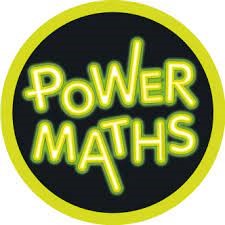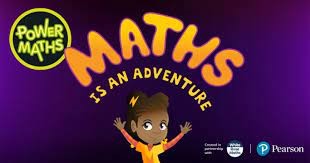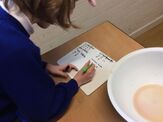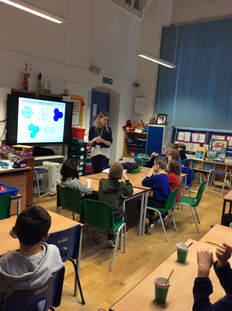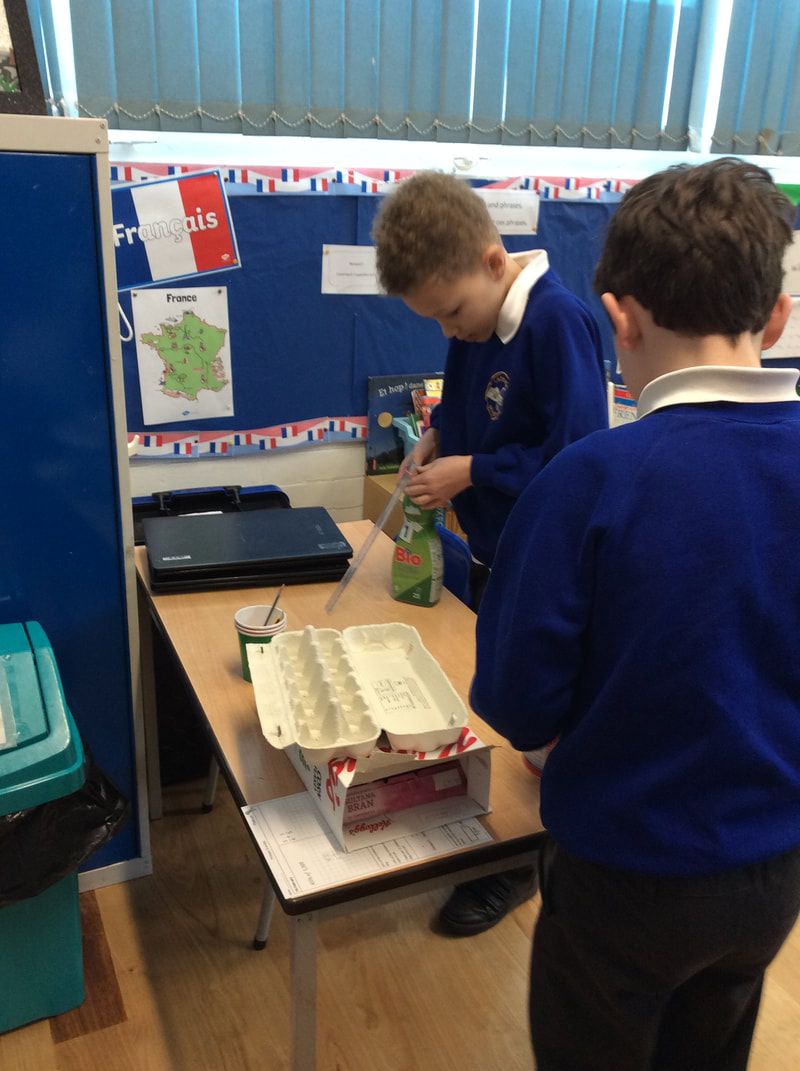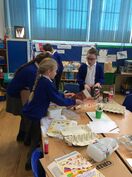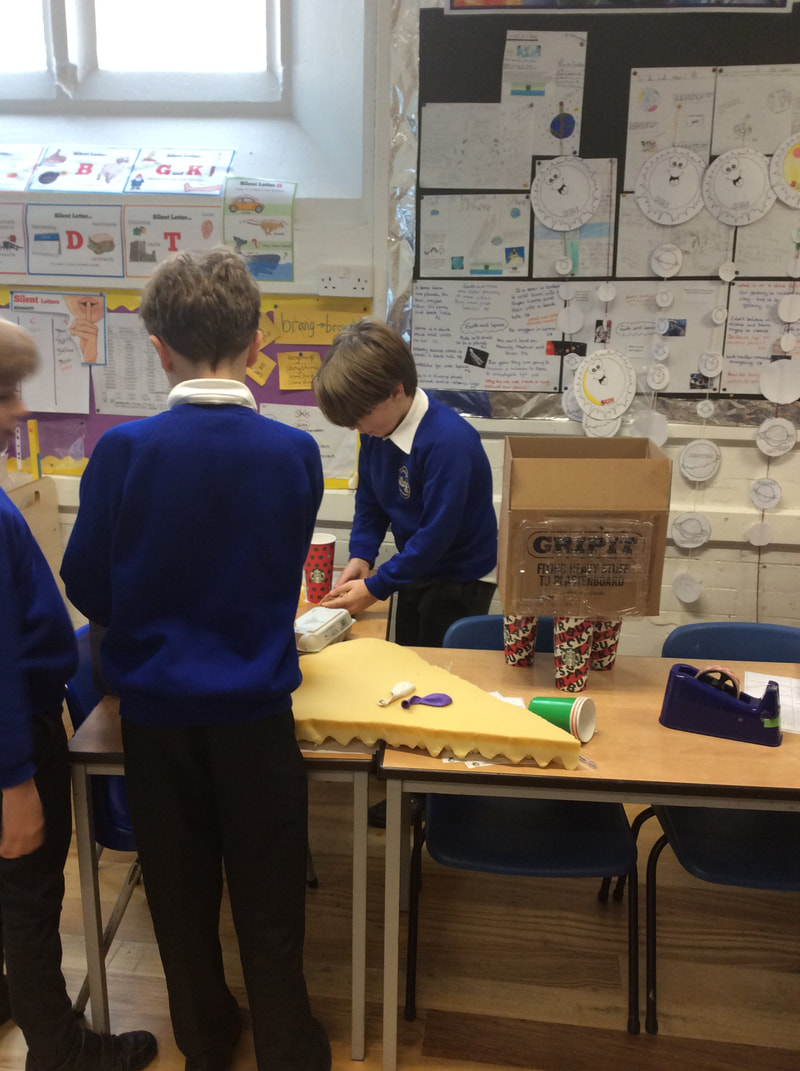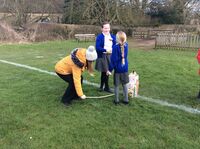Our intent
Maths is a skill we use on a daily basis and is an essential part of everyday life. Therefore, mathematics forms an important part of our broad and balanced curriculum where we endeavour to ensure that children develop an enjoyment and enthusiasm for maths that will stay with them throughout their lives and empower them in future life. We believe that unlocking mathematical fluency is an essential life skill for all learners and is a pre-requisite to being able to reason and solve problems mathematically. Our aim is to develop a positive culture of deep understanding, confidence and competence in maths that produces strong, secure learning. As a school, we recognise that the key to unlocking the potential in our children is through the development of basic mathematical skills and the understanding of mathematical concepts. We therefore place great emphasis on the use of concrete resources and pictorial representations at all ages, to enable children to fully understand the concepts and principals, when presented with abstract calculations and questions. Our maths curriculum is progressive; at KS2 it is designed to develop competencies to equip pupils for KS3 where they will build on KS2, make connections and solve increasingly sophisticated problems.
Implementation
Our Maths curriculum provides breadth and balance, is relevant and engaging and is differentiated to match the needs and abilities of all our children to ensure that all pupils are able to excel. As a school, we believe in the importance of following the concrete-pictorial-approach as a means to developing a solid understanding of mathematical concepts which can be applied in a variety of contexts through reasoning and problem solving challenges. Children receive a minimum of 5hours maths tuition each week with additional sessions devoted to number proficiency and times tables. From Reception to Year 6, we adhere to our calculation policy which outlines the progression of strategies and methods to be taught and we have an accompanying vocabulary progression document which we also follow. We follow medium terms plans that have been carefully thought out from our Power maths scheme to support the teaching of maths across our mixed-age classes. These are in line with White Rose small steps. From Reception to Year 6, children follow the scheme of ‘Power maths’ which supports children in learning the fundamentals behind the meanings of numbers and exploring other key mathematical areas. Our maths curriculum is also supported through the implementation of resources from ‘White Rose.’ Power Maths and White Rose use ‘small steps’ to break down the teaching sequence into small achievable steps. Where children require additional support, ‘scaffolds’ are used to support children further to ensure that they have secured the small step before moving on. These ‘scaffolds’ may be in the form of returning to concrete resources or pictorial representations. For children who understand a concept quicker, challenges are used to deepen and challenge learners further within the curriculum area. These are evident in children’s books as they will be in addition to their Power Maths lesson for that day. They will either be stapled into their Power Maths book or added into their Blue Maths curriculum book. Progression documents such as our calculation policy are carefully used to ensure that children are not being stretched outside their year group but rather deepened within it. Within daily teaching, children will be reminded/taught fact sentences linked to previous/current learning which will constantly be referred to within the lesson. Through the use of spaced learning, they will have many opportunities to apply these fact sentences; modelling will support children in developing their ability to reason and explain their answers using them. Daily assessment is incorporated throughout the lesson through live and verbal feedback. Where children require additional support, ‘Ready to Progress’ documents from the NCETM are used to support children ensuring that they are ready for the next ‘small step’. Termly assessments are used as a diagnostic tool to ensure that teachers are adapting learning to meet the needs of all children and ensure that any necessary interventions are targeted specifically to meet the needs of children. We also make use of the ‘End of Unit Checks’ in Power Maths and White Rose to ensure that the children are ready to progress in their learning. Number facts and Times tables play an important part in our maths learning, with children developing their fluency in rapid recall of tables up to 12 x 12 by the end of year 4. While the rapid recall of times tables are being developed, children are also learning how to apply and manipulate their understanding of this to reason and solve problems. Children in Reception, Year 1 and Year 2 have daily ‘Number Sense’ sessions to ensure that rapid and fluent recall of all number facts to 20, while Year 3 to Year 6 practise their time tables daily in a programme that has been recommended by the Local Authority.
Impact
By the end of Year 6, transitioning to secondary school, we aspire that a Lacock mathematician will have developed a bank of efficient and accurate skills that can be used to calculate effectively. These will have been underpinned by the C-P-A process so children understand rather than just do, which ultimately will allow children to identify when answers do not make mathematical sense. Children will be able to apply these calculation skills and understanding of other areas to become confident and resilient problem-solvers with the ability to reason and articulate their ideas mathematically. Due to the embedding of fact sentences, children will have the language to be able to justify, reason and explain their answers.
Maths is a skill we use on a daily basis and is an essential part of everyday life. Therefore, mathematics forms an important part of our broad and balanced curriculum where we endeavour to ensure that children develop an enjoyment and enthusiasm for maths that will stay with them throughout their lives and empower them in future life. We believe that unlocking mathematical fluency is an essential life skill for all learners and is a pre-requisite to being able to reason and solve problems mathematically. Our aim is to develop a positive culture of deep understanding, confidence and competence in maths that produces strong, secure learning. As a school, we recognise that the key to unlocking the potential in our children is through the development of basic mathematical skills and the understanding of mathematical concepts. We therefore place great emphasis on the use of concrete resources and pictorial representations at all ages, to enable children to fully understand the concepts and principals, when presented with abstract calculations and questions. Our maths curriculum is progressive; at KS2 it is designed to develop competencies to equip pupils for KS3 where they will build on KS2, make connections and solve increasingly sophisticated problems.
Implementation
Our Maths curriculum provides breadth and balance, is relevant and engaging and is differentiated to match the needs and abilities of all our children to ensure that all pupils are able to excel. As a school, we believe in the importance of following the concrete-pictorial-approach as a means to developing a solid understanding of mathematical concepts which can be applied in a variety of contexts through reasoning and problem solving challenges. Children receive a minimum of 5hours maths tuition each week with additional sessions devoted to number proficiency and times tables. From Reception to Year 6, we adhere to our calculation policy which outlines the progression of strategies and methods to be taught and we have an accompanying vocabulary progression document which we also follow. We follow medium terms plans that have been carefully thought out from our Power maths scheme to support the teaching of maths across our mixed-age classes. These are in line with White Rose small steps. From Reception to Year 6, children follow the scheme of ‘Power maths’ which supports children in learning the fundamentals behind the meanings of numbers and exploring other key mathematical areas. Our maths curriculum is also supported through the implementation of resources from ‘White Rose.’ Power Maths and White Rose use ‘small steps’ to break down the teaching sequence into small achievable steps. Where children require additional support, ‘scaffolds’ are used to support children further to ensure that they have secured the small step before moving on. These ‘scaffolds’ may be in the form of returning to concrete resources or pictorial representations. For children who understand a concept quicker, challenges are used to deepen and challenge learners further within the curriculum area. These are evident in children’s books as they will be in addition to their Power Maths lesson for that day. They will either be stapled into their Power Maths book or added into their Blue Maths curriculum book. Progression documents such as our calculation policy are carefully used to ensure that children are not being stretched outside their year group but rather deepened within it. Within daily teaching, children will be reminded/taught fact sentences linked to previous/current learning which will constantly be referred to within the lesson. Through the use of spaced learning, they will have many opportunities to apply these fact sentences; modelling will support children in developing their ability to reason and explain their answers using them. Daily assessment is incorporated throughout the lesson through live and verbal feedback. Where children require additional support, ‘Ready to Progress’ documents from the NCETM are used to support children ensuring that they are ready for the next ‘small step’. Termly assessments are used as a diagnostic tool to ensure that teachers are adapting learning to meet the needs of all children and ensure that any necessary interventions are targeted specifically to meet the needs of children. We also make use of the ‘End of Unit Checks’ in Power Maths and White Rose to ensure that the children are ready to progress in their learning. Number facts and Times tables play an important part in our maths learning, with children developing their fluency in rapid recall of tables up to 12 x 12 by the end of year 4. While the rapid recall of times tables are being developed, children are also learning how to apply and manipulate their understanding of this to reason and solve problems. Children in Reception, Year 1 and Year 2 have daily ‘Number Sense’ sessions to ensure that rapid and fluent recall of all number facts to 20, while Year 3 to Year 6 practise their time tables daily in a programme that has been recommended by the Local Authority.
Impact
By the end of Year 6, transitioning to secondary school, we aspire that a Lacock mathematician will have developed a bank of efficient and accurate skills that can be used to calculate effectively. These will have been underpinned by the C-P-A process so children understand rather than just do, which ultimately will allow children to identify when answers do not make mathematical sense. Children will be able to apply these calculation skills and understanding of other areas to become confident and resilient problem-solvers with the ability to reason and articulate their ideas mathematically. Due to the embedding of fact sentences, children will have the language to be able to justify, reason and explain their answers.
Maths Activities
Number Day
On Friday 7th February we celebrated national Number Day in School. Oak Class had to use their knowledge of angles and their measuring skills to create robots that would launch a ping pong ball or a pom pom across the field. They then had to work out the mean, median and range of their launches. Willow Class went on a number walk around the village and found lots of numbers everywhere, including car plates, dates, numbers in the bible and ones on people's doors.
On Friday 7th February we celebrated national Number Day in School. Oak Class had to use their knowledge of angles and their measuring skills to create robots that would launch a ping pong ball or a pom pom across the field. They then had to work out the mean, median and range of their launches. Willow Class went on a number walk around the village and found lots of numbers everywhere, including car plates, dates, numbers in the bible and ones on people's doors.
| Maths Event at Sheldon - written by Pupils | |
| File Size: | 220 kb |
| File Type: | |
Useful Information
|
| ||||||||||||
|
| ||||||||||||
| Progression in Number bonds and Timetables | |
| File Size: | 49 kb |
| File Type: | |
| Times tables clubs booklet | |
| File Size: | 147 kb |
| File Type: | |
| Activity Ideas | |
| File Size: | 139 kb |
| File Type: | |
| Maths Leaflet | |
| File Size: | 290 kb |
| File Type: | |

